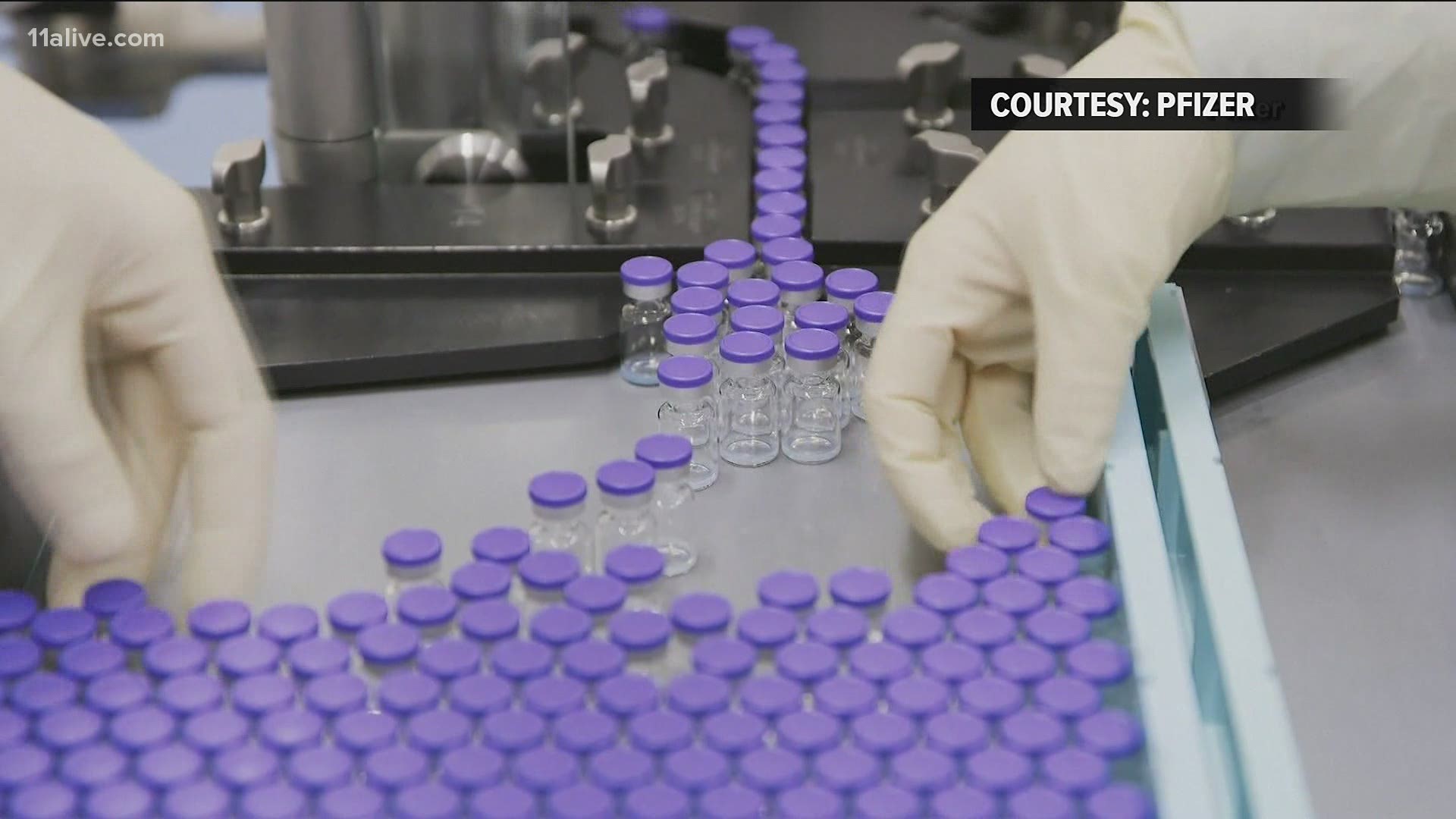ATLANTA — ATLANTA – The yearly flu shot requires one encounter with a needle, but the much anticipated COVID-19 vaccine will require two shots.
Late Friday, the Food and Drug Administration authorized the emergency use of Pfizer’s COVID-19 vaccine. The first shipments left the Pfizer plant in Michigan Sunday. The FDA is looking at a possible emergency use declaration on a vaccine produced by Moderna.
Both vaccines will require two doses. According to the CDC, the first shot should be followed by a second three weeks later.
It is not uncommon. Many vaccines require more than one dose.
When your lawnmower has been sitting in the garage all winter, the engine needs a little encouragement before it starts working again. Sometimes your body’s immune system is the same way. Different vaccines teach your body how to recognize and combat different diseases.
One lesson may be enough, but not always.
“There may be some proportion of people who are protected,” Dr. Walt Orenstein of the Emory Vaccine Center said. “But you may not have an optimal proportion of people who are protected.”
Like hitting the primer on your lawnmower, sometimes your immune system needs a little added boost to fight some diseases.
The first dose of a vaccine does the priming. Then comes another dose.
“The second dose is more to ensure that everyone gets that full response so you see a lot of variability from vaccine to vaccine,” said Dr. Ashley Hannings of the University of Georgia School of Pharmacy.
Your body produces more antibodies with a second shot along with an ample supply of memory cells that remind your body how to fight a particular illness years later.
“You have immune cells that get stimulated and make more immune cells that are more ready to deal with the invading virus than with a single dose,” Dr. Orenstein said.
Sometimes multiple doses are taken several weeks apart. Sometimes it’s years. Those memory cells don’t last forever. After the initial round of tetanus shots, it’s recommended you get another booster round every ten years.

